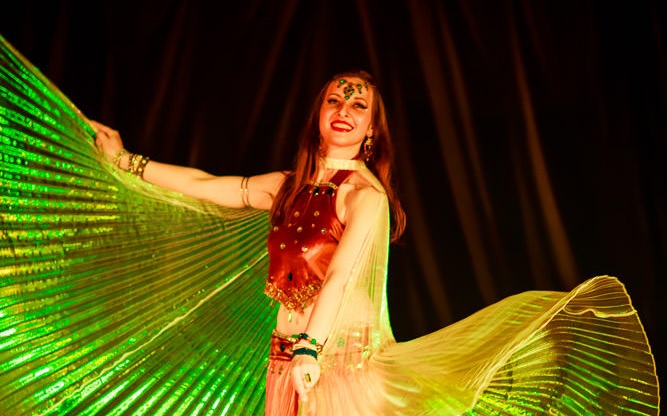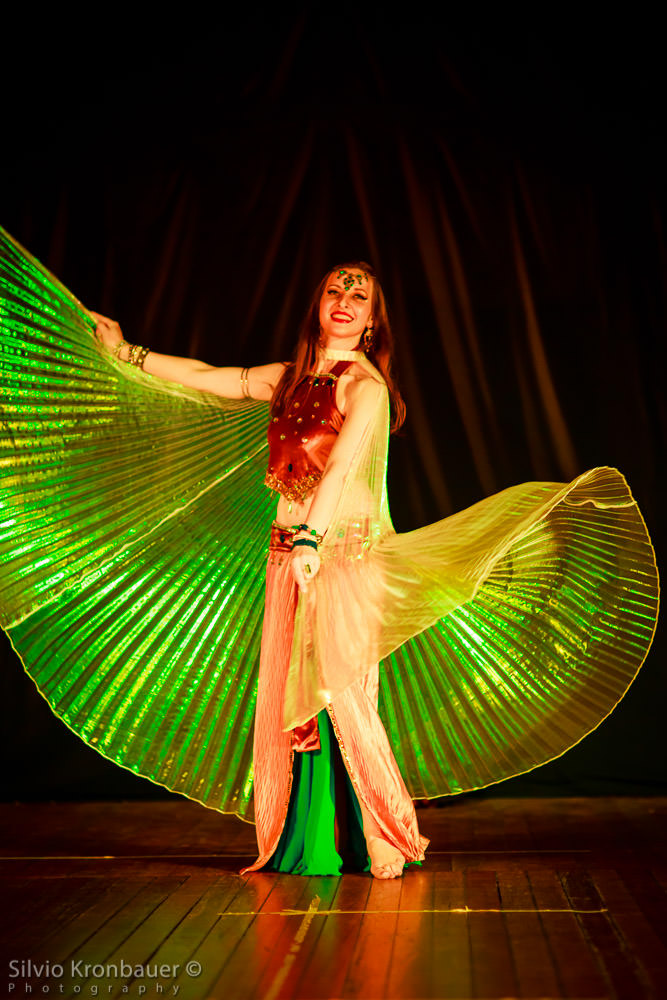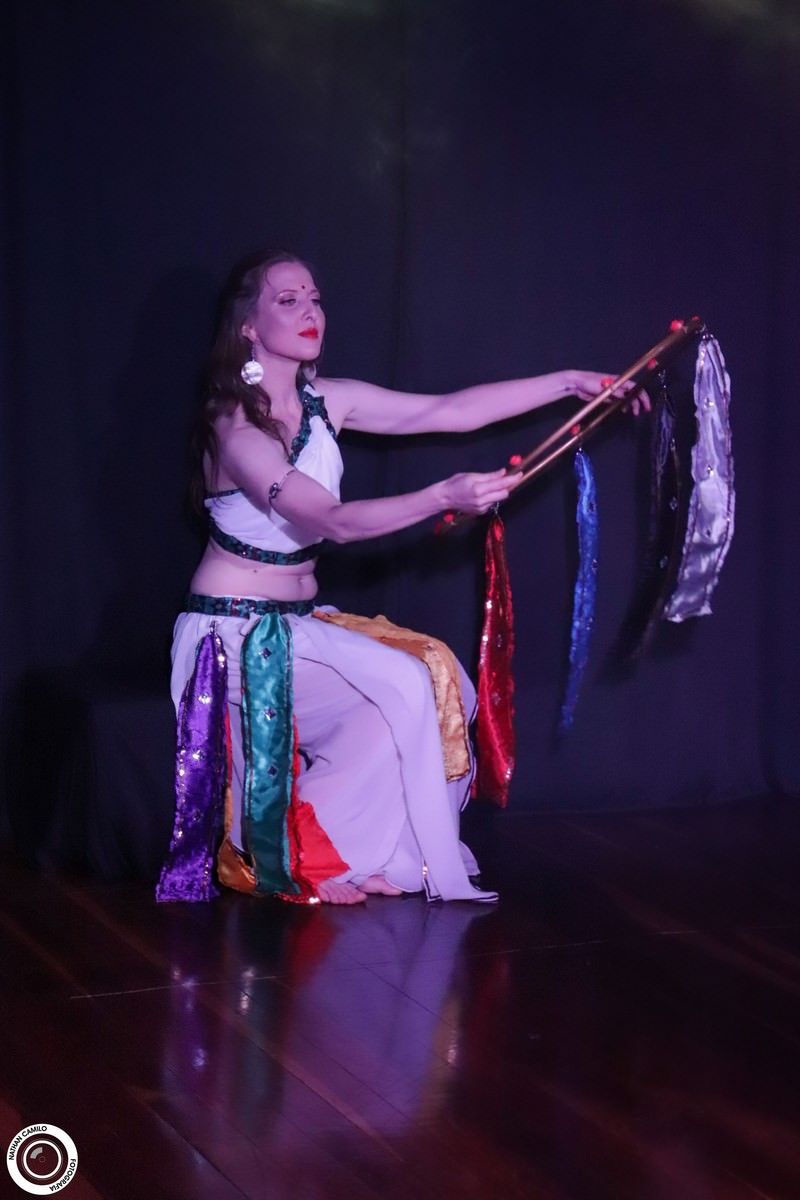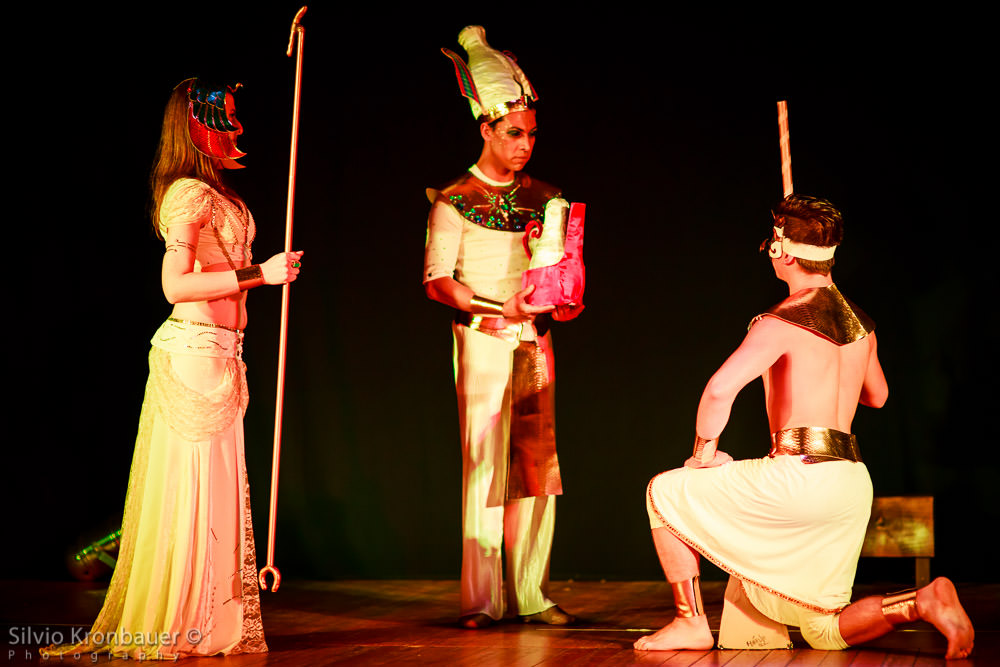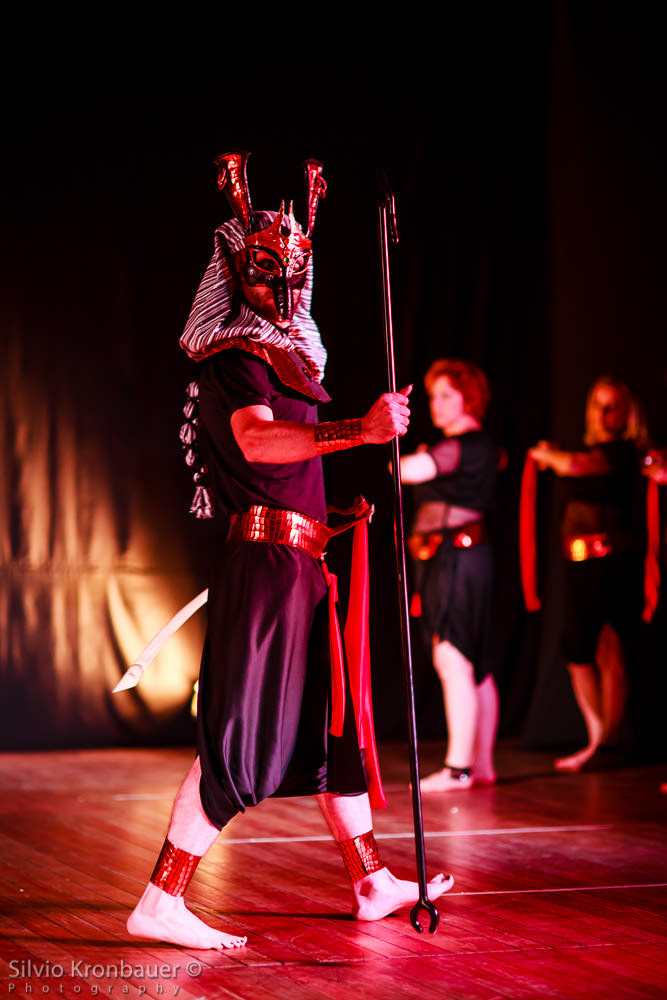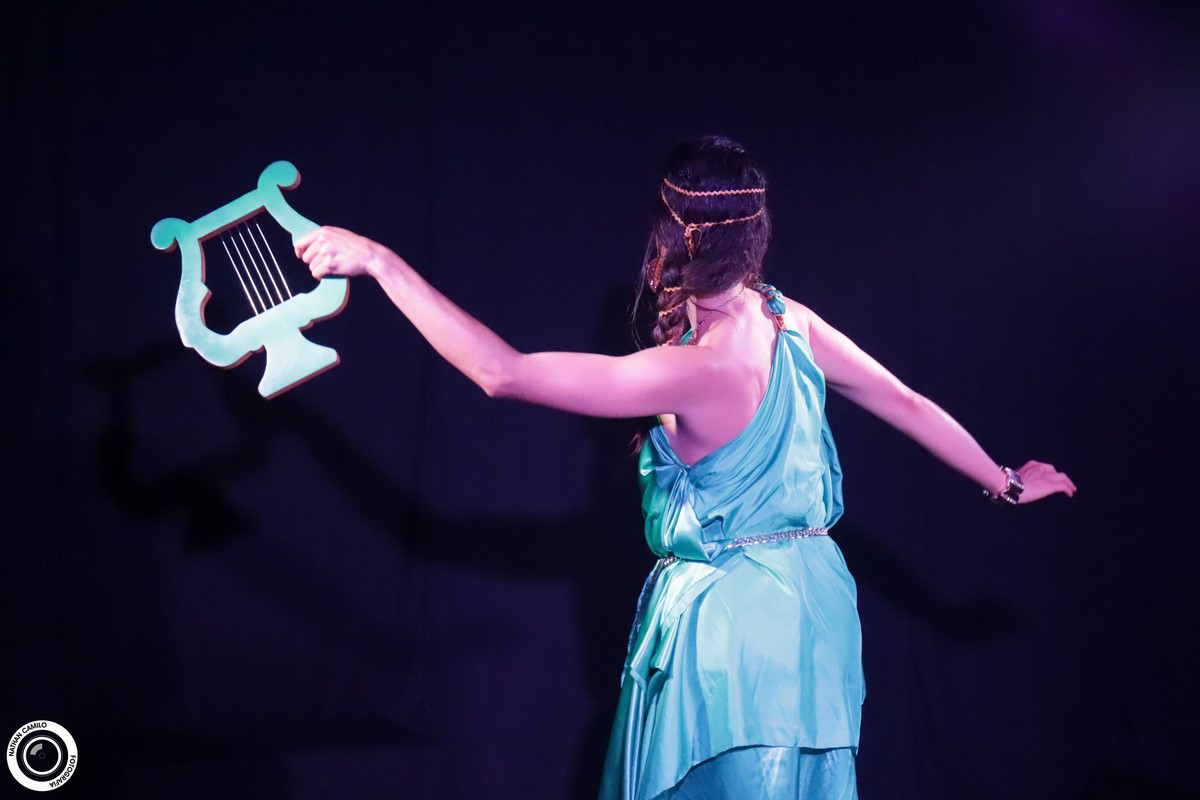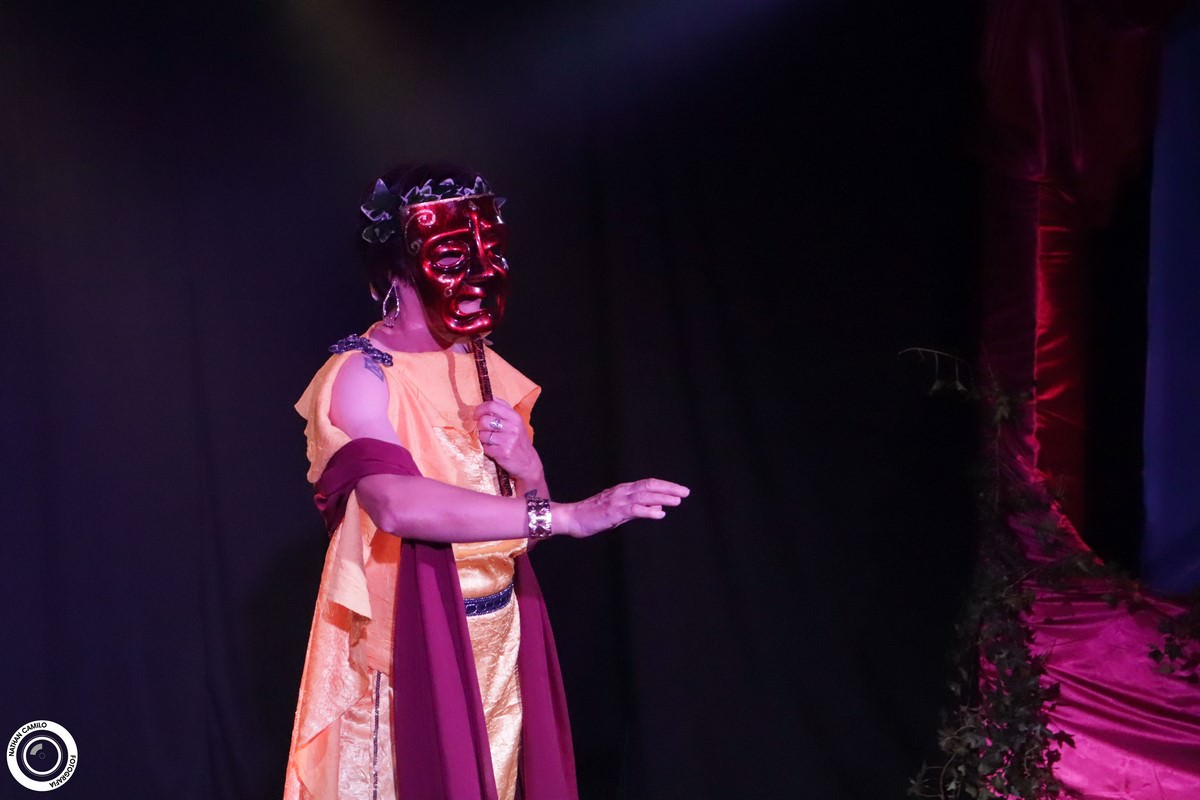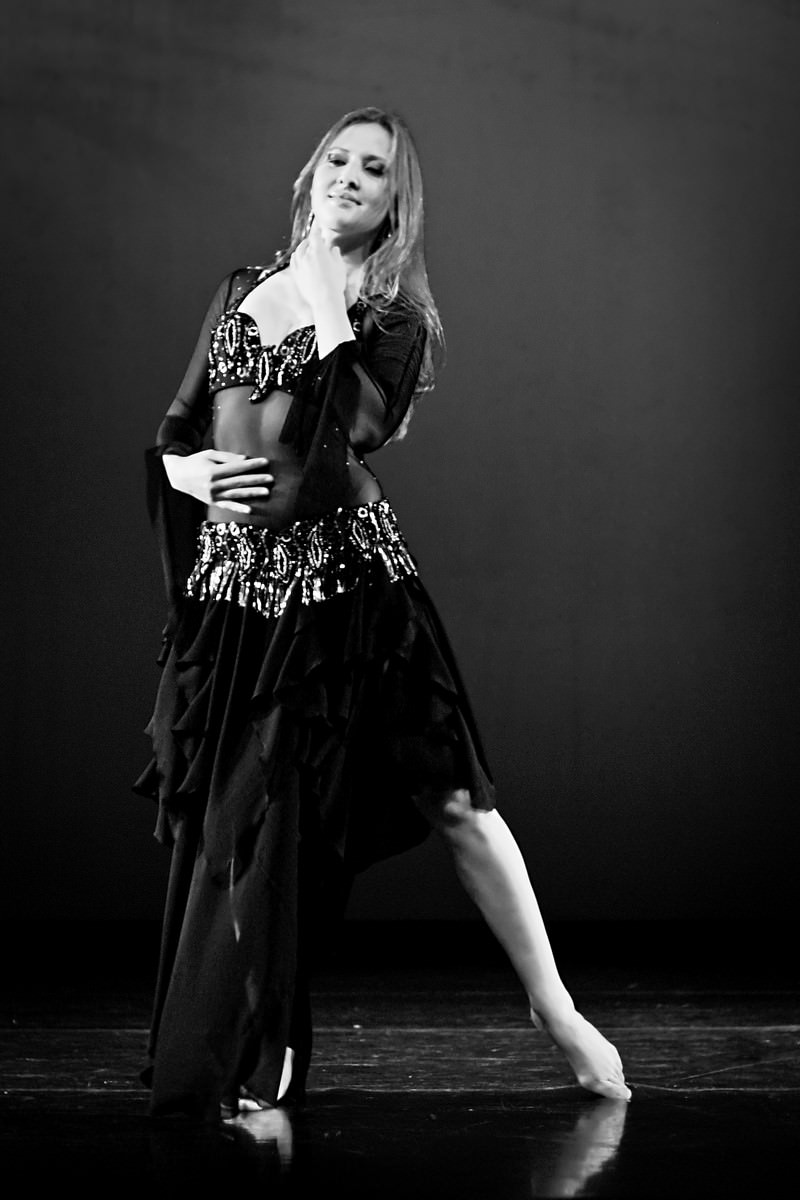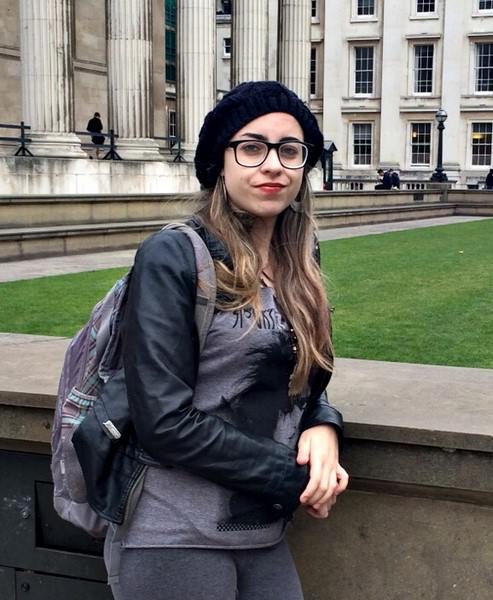
“Dance is the poetic language of the body. I couldn't define it any other way. In its construction process, the practice of dance can bring numerous benefits to an individual's life.” Cris Sybilla
- Cris, when did you realize that dance would be such an important and indispensable part of your existence? Usually, we start dancing when we are very young and this practice is part of all life (for some more, for others less). But in your case, was there a specific situation that made you sure that you would really dedicate yourself to it?
Contrary to what usually tends to happen with many dancers and dancers, my involvement with dance did not start in childhood, but early in my adult life, with 22 years. And at this point, dance took on an important position in my life when I realized that dancing was something transformative, and its practice took on a therapeutic tone in my routine. Therefore, there was a time when artistic performance and therapeutic transformation were in the same place in my dance practice. I believe it was at that moment when I realized that there was no return to what I was before I started dancing. Could, activate, cite better physical conditioning, position, body awareness as significant stimuli to never get away from it, but the fact that my object of study is the dance we know as Belly Dance, in which your language talks fully with the body and the female universe, this was always the real reason that kept me close to this dance.
- You even took a dance class? If so, for how long? How was the experience?
I started my studies ago 16 years in Canela / RS, and from then on, I continued with regular classes and workshops with countless teachers from Brazil and abroad, mainly Egyptian teachers, when they came to Brazil. In 2010 I joined the Dance Degree course, from UFRGS, and I had contact with other experiences and dance professionals that greatly expanded and enriched my artistic universe, philosophical and performative about the movement. In the meantime, I moved to the interior of RS, which made my stay at the university very difficult, and I abandoned the course definitely in 2015. Currently, with regard to dance, I continue studying with other professionals, especially linked to Oriental Dance, besides having had experiments and studies for three years in Bharatanatyam, an Indian classical dance.
- How long have you been a dance teacher and choreographer? Is there any difference between these two terms?
I've worked as a dance teacher since 2008 and choreographing goes through the teacher's practice, and often. And this is my case. The dance teacher teaches movements, shows ways and possibilities to explore body movement, working conscience about yourself and the world. Each dance with its language will have the vocabulary belonging to its own universe. In oriental dance, for being an ethnic dance, being a teacher of this modality concerns, yet, to instruct the student about his historical-cultural universe. A choreographer does not necessarily have to be a teacher, he will work with dance writing, and you can dedicate yourself only to a performance, or a bigger project, as a show composed of several dances, for example. Whatever, it is desirable that he knows the vocabulary of movements very well with which he will work.
- You have expertise in Arabic dance, right? Could you tell us a little about the characteristics of this type of dance?
Yes, I have a specialization in Arab Oriental Dance, and it's the dance vocabulary that I dedicate myself to the most. There is a great divergence in this medium as to its name. I like to call it the Egyptian-style Oriental Dance, since it is with the Egyptian style that I have more affinity and, as named by the Egyptians: Raqs = Dance, Sharqi = Oriental. But we know it widely as Belly Dance. This dance is considered very old, since hieroglyphics in temples in Egypt show the presence of women dancing and carrying musical instruments. One way or another, it essentially translates into sinuous and energetic movements performed with the hip. It is true that this dance has changed over time, changed, talked to other dance languages through the influence of other peoples, and became what we know today; is without doubt, a living dance, but the dance we currently perform has been improved from the brown from Egypt (would be a gypsy equivalent, but it is not a consensus), and the rise of cinema in that country, since the years 20. In this sense, we could highlight, yet, that Arab dances are permeated with traditional dances, popular and folk, and that ‘belly dance’ is also part of this cultural framework. It is notable that she has a dance vocabulary common to all Arabic-speaking peoples, but also to Greece and Turkey, for example. I also like to mention the similarity with the Polynesian culture dances, given that hip movement also has relevance, due cultural differences are respected, evidently. All of this brings us to the womb of the Great Mother who formerly received rites in her honor, to the womb that everything gives to your children, the humanity. This leads us to believe that a way of proto ‘Belly dance’ comes from these fertility rites, once realized within a worldview in which God could only be a woman. But in that regard, we can only speculate. Thereby, it seems to me no mistake to name it Belly Dance, even though we don't know any other dance that identifies itself by a part of the human body.
- Do you think anyone can dance? Many people consider that they have no ability to do this… Would dance be an innate talent, or something you learn with practice?
I think that everyone can develop the ability of dance or movement. However, in my practice as a teacher, I realize that not everyone has a rhythmic or melodic sensitivity applicable to the body when exposed to music. It is difficult to define precisely what prevents these individuals from accessing this timing having music as a guide. Adequacy to the rhythm is an important quality for performing dances such as oriental ones, that require precision from the dancer, and in my view, it is essential and fundamental. Of course it is important to note that there are some dance languages that are not under the hierarchy of music, where this is not the main proposal. Therefore, I think that, in these cases, the individual must look for the language that best speaks to his way of expressing himself, respecting the modality in which it is inserted. Otherwise, there are people who, as Howard Gardner showed in his studies on the various intelligences, have kinesthetic body intelligence, which, more or less, we could translate as talent for dance. However, even if an individual has this facility, without working it, can hardly develop a satisfactory performance, in artistic terms, and, in this sense, activate, anyone with rhythmic sensitivity can learn a dance modality that can be perfectly developed with constant practice.
- How do you define the dance? In what ways can this practice be positive in a person's life?
Dance is the poetic language of the body. I couldn't define it any other way. In its construction process, the practice of dance can bring numerous benefits to an individual's life. Whether by physical activity properly, that the person will come across directly, improving postural alignment, in flexibility, in muscle tone, in cardiorespiratory fitness, to cite some examples. Many people report an improvement in self-esteem, not to mention the exercise of creativity through movement, in socialization, in expanding the practitioner's cultural baggage. However, regardless of whether the individual is aware of all these benefits that may result from this practice, I think, especially, that your love of dance is what will unleash any benefit you may experience with your performance.
- What kind of goal do you seek to achieve through your classes? What kind of effect do you intend to have on your students?
I try to make the most of the connection with the culture surrounding oriental dance, especially the Egyptian, with their folk dances, history, musicality, mythology to add to a dance that has specific body techniques. I also try to observe that its characteristic movement in itself could already bring numerous benefits to those who practice it. And, in this sense, providing all this baggage together depends a lot on the goals of those looking for dance, who, sometimes, finds it boring to take theoretical classes when his interest is only dancing. In view of this, so that this process does not become mandatory, I try every year to find a specific rhythm for each class, to develop these themes, matching classes to their needs.
- And in relation to the sensation generated in those who watch a certain dance? What can it do positively in a viewer?
I think that the aesthetic experience of those who watch a dance will be accessed according to their cultural background and that aspect is beyond our control. Many times, it may happen that a person does not have a good identification with the theme or with the dance language they are enjoying, and not having a good experience, for example, which is absolutely normal. So that now, nevertheless, I believe that, most of the time, people can have positive experiences, and, when it comes to the productions we create, our goal is always to provide the public with the best experience possible.
- Could you tell us a little about the presentation based on the myth of Isis and Osiris? Apparently it was unprecedented in Brazil…
In 2017 we performed the show “The Journey of Isis - The Myth of Isis and Osiris told through Dance” and, although it is difficult to specify this information, apparently, until that moment, We did, activate, an unprecedented show, according to the parameters of oriental dance productions carried out in Brazil on this myth. We did research on Egyptian mythology, we created the script, the choreographies, and we have a production that mixed dancers, circus artists, theater actors, artisans and much goodwill from all. It was really exciting and unforgettable. The purpose of this show was to bring oriental dance into the myth and use the scenic and performance resources that could read our mythological outline in the most appropriate way possible. Egyptian mythology is full of versions of its mythical characters that often make their understanding somewhat truncated. Bring this storyline in dance form and make this myth understandable to the audience that, and often, never heard of this mythology, it was our biggest challenge. I believe that we have been happy in that purpose, that night everyone followed the journey of Isis in her search for Osiris and hoped for its success.
- And the presentation based on Greek muses? As was?
In 2019 we created the show “Dancing with the Muses - A trip to Ancient Greece”, and at that moment, the objective was to bring the public closer to a little worked on Greek mythology: the Greek muses. We surround the universe of the god Apollo, showing the path of a pythoness, from or Temple of Delphos, until the encounter with each of the muses and their Sacred Arts. This script was about an original story, we don't tell any specific myths, but we travel the Apollonian universe through Dance, Music and Theater. The challenge here was to adapt the language of oriental dance to the setting of Ancient Greece, without decharacterizing it, aided by the use of accessories built especially for the show (Liras, Arcos, Masks, etc..), for the costumes characterized by their tunics and the music. Anyway, this was a more authorial work that sought to connect the musical and artistic universe in a timeless way, along with dramatization and dance. It was really very special.
- Do you have in mind any idea or concept for future events?
Yes, I have a list of myths and stories that I would love to tell through dance, and that would provide an inspiring environment to work. Among so many mythological universes that instigate me, I have an appreciation for Arthurian legends and Sumerian mythology. Maybe it was one of those paths at first; I also think it is important to provide presentations that consider the context of Egyptian dance, just as she is, in order not to distance this culture and the way its dance is performed from the audience that appreciates it. Since I started producing oriental dance events I have always tried to bring Egyptian culture to the performances. I consider it important that we have freedom to be able to realize our creativity, as artists, both ways, the performance context and the ethnic context, but always respecting the cultural matrix where oriental dance comes from. Yet, in this pandemic moment in which we live, it is difficult to project a return to these initiatives, for obvious reasons, although we hope it will be in the near future.
Sign up to receive Event News
and the Universe of Arts first!
….
.
.
JULIANA VANNUCCHI
Sorocaba – São Paulo
Facebook Profile | Facebook Fan Page
Website Philosophical Collection
E-mail: ju.vannucchi@hotmail.com
WEBSITE obrasdarte.com:
Contemporary Artists
ArtWorks Gallery
Google + | Facebook Fan Page | Twitter

